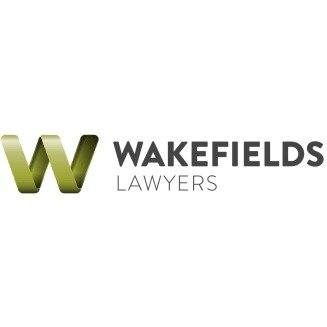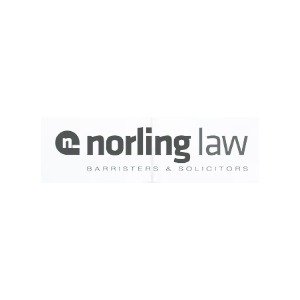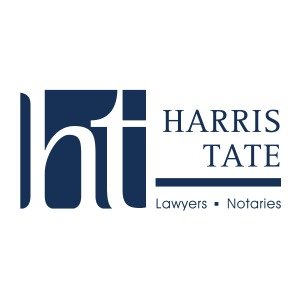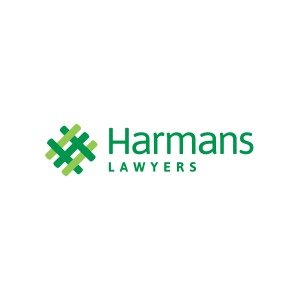Best Bankruptcy Lawyers in New Zealand
Share your needs with us, get contacted by law firms.
Free. Takes 2 min.
Or refine your search by selecting a city:
List of the best lawyers in New Zealand
About Bankruptcy Law in New Zealand
Bankruptcy in New Zealand is a legal process designed to help individuals who are unable to pay their debts. The main purpose of bankruptcy is to provide a fresh start for the debtor while ensuring creditors are treated fairly. The process involves the transfer of the individual’s assets to an appointed official, the Official Assignee, who is responsible for distributing them to creditors. Individuals typically remain bankrupt for three years, during which there are certain restrictions and obligations they must adhere to. This process is governed by the Insolvency Act 2006 and is managed by the New Zealand Insolvency and Trustee Service.
Why You May Need a Lawyer
There are several situations where seeking legal advice in the field of bankruptcy may be beneficial:
- Complex Financial Situations: If your financial situation is complex, with multiple creditors, assets, or co-debtors, a lawyer can help manage and navigate these complexities.
- Legal Protections and Rights: Lawyers can provide guidance on what bankruptcy means for you legally, including your rights and obligations.
- Asset Management: If you have significant assets, you may need a lawyer to optimize the management or preservation of these assets during bankruptcy.
- Disputes with Creditors: Legal assistance can be crucial if there are disputes or negotiations needed with creditors.
- Alternatives to Bankruptcy: A lawyer can discuss alternative solutions if bankruptcy might not be the best option, such as No Asset Procedures or Debt Repayment Orders.
Local Laws Overview
In New Zealand, bankruptcy is primarily governed by the Insolvency Act 2006. Some key aspects include:
- Property Seizure: Upon bankruptcy, an individual's assets are transferred to the Official Assignee to be used to satisfy creditor claims.
- Income Contributions: If you earn over a certain amount, you may be required to make income contributions to your estate.
- Employment and Business Restrictions: Certain restrictions apply, such as you cannot act as a company director or be involved in the management of a business without permission.
- Duration of Bankruptcy: Bankruptcy usually lasts for three years, after which most individuals are released from their debts.
- Bankruptcy Register: Bankruptcies are recorded in the public bankruptcy register, which is a searchable database.
Frequently Asked Questions
What is bankruptcy?
Bankruptcy is a legal process for people who cannot repay their outstanding debts. It involves transferring control of their financial affairs to the Official Assignee.
What are the consequences of declaring bankruptcy?
Consequences include losing control of your assets, restrictions on financial activities, and potential negative impacts on employment and business opportunities. Your credit score will also be affected for several years.
Can I keep any assets if I declare bankruptcy?
Some personal items and tools of trade can be kept. However, most valuable assets might be sold by the Official Assignee to pay creditors.
How long does bankruptcy last?
Bankruptcy typically lasts for three years. Afterwards, you are usually discharged from remaining debts.
Can creditors still contact me once I’m bankrupt?
No. Creditors must deal with the Official Assignee once you have been declared bankrupt.
Is bankruptcy recorded publicly?
Yes, bankruptcy is recorded on the public Insolvency Register, which anyone can search.
Can I work or start a business while bankrupt?
You can work, but running a business or acting as a company director comes with restrictions and often requires permission from the Official Assignee.
What happens to my credit score after bankruptcy?
Your credit score will be negatively impacted. Bankruptcy stays on your credit report for up to seven years, affecting your ability to obtain credit.
Are all debts discharged after bankruptcy?
Most debts are discharged, but some, like child support payments, certain fines, and student loans, are not.
Can bankruptcy proceedings come from overseas debts?
Foreign creditors can initiate bankruptcy actions, and overseas debts can be included in the bankruptcy process.
Additional Resources
For more information on bankruptcy in New Zealand, you can consult the following resources:
- Insolvency and Trustee Service: Part of the Ministry of Business, Innovation and Employment, it provides comprehensive guidelines and support.
- Community Law Centres: Offer free legal advice and assistance regarding bankruptcy and other legal matters.
- Citizens Advice Bureau: Provides information and assistance on bankruptcy and other financial issues.
- Financial Advisors: Consider consulting a certified financial advisor for personalized financial advice.
Next Steps
If you are considering bankruptcy or need legal assistance, here are some steps to consider:
- Seek Legal Advice: Contact a lawyer specializing in insolvency and bankruptcy for a detailed consultation.
- Gather Financial Information: Assemble documentation regarding your debts, assets, and income to provide a clear picture of your financial situation.
- Explore Alternatives: Consider alternatives like debt consolidation or financial counseling as potential solutions.
- Contact Relevant Authorities: Reach out to the Insolvency and Trustee Service or a community law centre for guidance.
- Stay Informed: Keep yourself updated with current laws and practices regarding bankruptcy through official websites and legal publications.
Lawzana helps you find the best lawyers and law firms in New Zealand through a curated and pre-screened list of qualified legal professionals. Our platform offers rankings and detailed profiles of attorneys and law firms, allowing you to compare based on practice areas, including Bankruptcy, experience, and client feedback.
Each profile includes a description of the firm's areas of practice, client reviews, team members and partners, year of establishment, spoken languages, office locations, contact information, social media presence, and any published articles or resources. Most firms on our platform speak English and are experienced in both local and international legal matters.
Get a quote from top-rated law firms in New Zealand — quickly, securely, and without unnecessary hassle.
Disclaimer:
The information provided on this page is for general informational purposes only and does not constitute legal advice. While we strive to ensure the accuracy and relevance of the content, legal information may change over time, and interpretations of the law can vary. You should always consult with a qualified legal professional for advice specific to your situation.
We disclaim all liability for actions taken or not taken based on the content of this page. If you believe any information is incorrect or outdated, please contact us, and we will review and update it where appropriate.
Browse bankruptcy law firms by city in New Zealand
Refine your search by selecting a city.

















